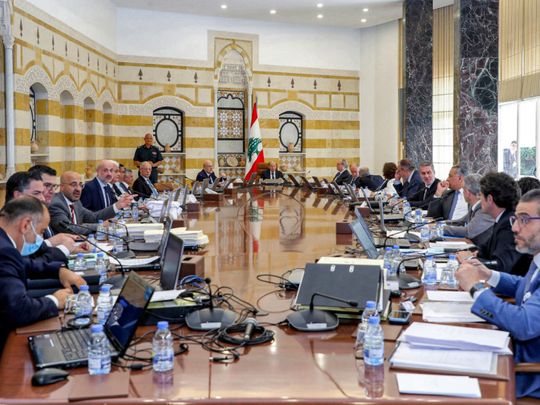
Washington: The United States on Friday urged Lebanon’s leaders to move urgently to form a government and address a crisis-wracked economy after elections raised fears of new political deadlock.
“We urge those elected and the country’s political leaders to heed the Lebanese people’s call for change and to work seriously, and with urgency, to take the necessary actions to rescue the economy,” State Department spokesman Ned Price said.
“We also urge the swift formation of a government capable of and committed to undertaking the hard work required to restore the confidence of the Lebanese people and the international community,” he said in a statement.
Hezbollah, the Iranian-backed Shiite militant movement considered a terrorist group by Washington, with its allies lost a parliamentary majority in Sunday’s vote as independents made a surprise breakthrough.
The US statement saluted the holding of elections on time but voiced concerns about “allegations of vote buying, clientelism and reports of intimidation.”
Lebanon’s fragile political system reflects attempts to balance between religious communities in the wake of the 1975-1990 civil war.
The election was the first since Lebanon plunged into an economic crisis and suffered a massive explosion that devastated the Beirut port in 2020.
Also on Friday, Lebanon’s outgoing government approved a recovery plan for pulling the Mideast nation out of its economic meltdown, the country’s information minister said.
The development came during the Cabinet’s last official meeting before it becomes a caretaker government following last weekend’s parliamentary elections.
The plan is a first step on a difficult and complicated road with the ultimate goal of wresting Lebanon out of the worst economic crisis in its modern history. The crisis, which erupted in October 2019, leading to nationwide protests, is rooted in decades of corruption and mismanagement.
However, Parliament still has to approve the plan, which includes restructuring the country’s hard-hit banking sector and amending decades-old banking secrecy laws.
The economic recovery plan is a key demand by the International Monetary Fund. Lebanon ‘s government singed last month a tentative agreement with the IMF for comprehensive economic policies that could eventually pave the way for some relief for the crisis-hit nation.
Plan aims to protect small depositors
The IMF and the international community have been demanding that Lebanon implement wide-ranging economic and financial reforms in order to release loans and investments worth billions of dollars.
Information Minister Ziad Makary said Prime Minister Najib Mikati’s government approved the plan, though there were some objections from ministers close to the Iran-backed militant Hezbollah group and its ally Amal, a faction led by Parliament Speaker Nabih Berri.
Mikati told reporters that the plan aims to protect small depositors while ways of protecting large depositors will be negotiated with the IMF. He offered no figures but had in the past said that small depositors are those with $100,000 and less.
“The challenges that our country is facing demand a strong administration and cooperation between all sides,’’ Mikati said in an apparent message to the incoming Cabinet and newly elected lawmakers.
“Every day that passes will cost more if we don’t implement the economic recovery plan in full,’’ he added.
Lebanon defaulted in March 2020 on paying back its massive debt, worth at the time some $90 billion or 170% of the country’s GDP, making it one of the highest in the world.
The economic meltdown has plunged into poverty three-quarters of the population of 6 million people, including 1 million Syrian refugees. The Lebanese pound has lost more than 90% of its value.
Mikati’s government on Friday also approved funding of $35 million a month to buy medicines for cancer patients and those with chronic diseases for the next four months. The Cabinet also approved a hike in telecommunication prices, starting in July.
Lebanese voters on Sunday elected a new parliament, with Hezbollah and its allies losing majority in the 128-member legislature.
The new parliament should convene in the coming weeks to elect a parliament speaker. President Michel Aoun is expected to call for consultations with the new legislators who will then name a new prime minister.
The process is not likely to be easy, with deep divisions in the legislature among the Hezbollah-led alliance, pro-Western groups and independents.











